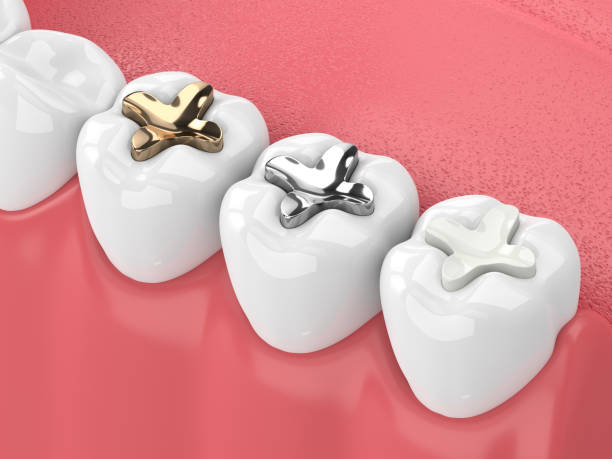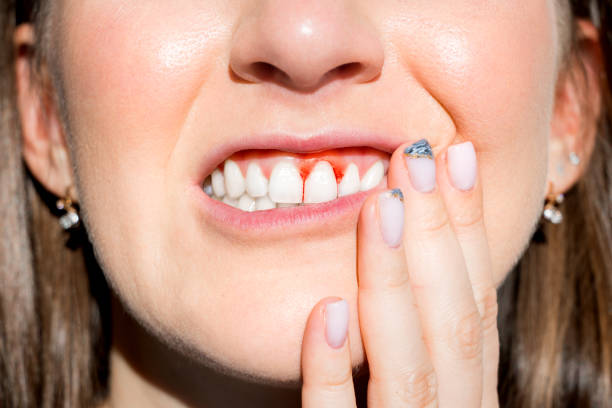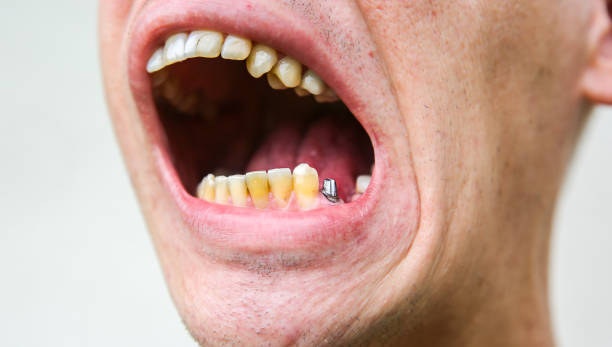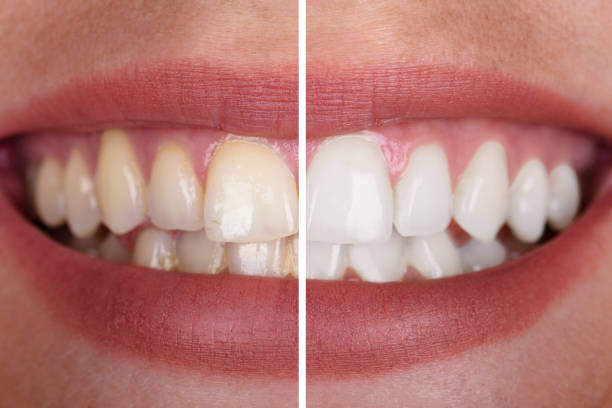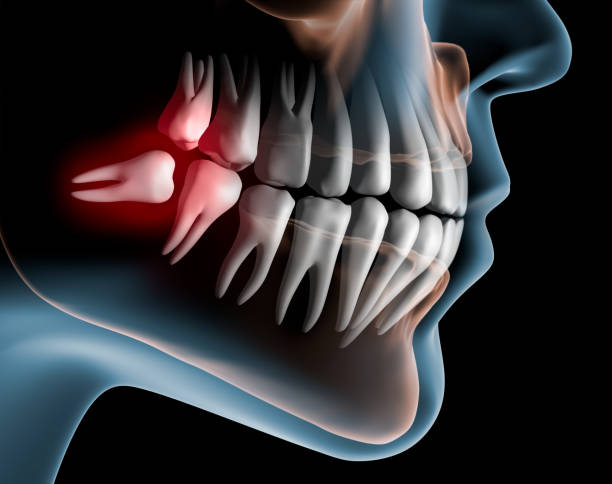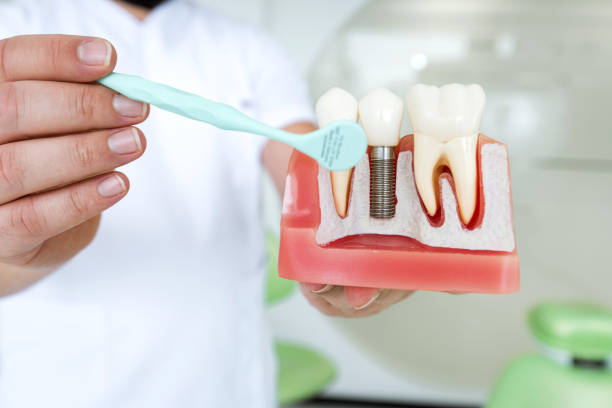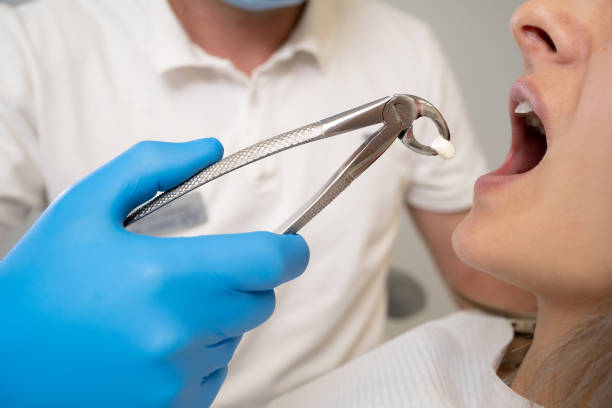Are you concerned about the impacted wisdom teeth removal will have on your sleep? You’re not alone; numerous patients have the same worries as you do. In addition, it can be a little more challenging to get enough sleep due to the discomfort associated with recovery from surgery.
How to sleep after wisdom teeth removal? After wisdom teeth extraction, you need to sleep with your head elevated for the first few nights. When you’re sleeping on your side, just one pillow should be enough. Lean back and stack a few pillows behind you for support if you’re having trouble falling asleep in that position.
You can sleep after having your wisdom teeth removed if you take the proper precautions. Here, we go over how to get the rest you require as you heal from a tooth extraction.
Table of Contents
Side Effects Of Wisdom Teeth Removal
A wisdom tooth extraction may result in some typical side effects. We list these typical symptoms along with the best practices for medical treatment as recommended by Mayo Clinic.
- Pain: You can ask your doctor for a prescription to help with pain management. A cold compress and an over-the-counter painkiller, such as Tylenol, are also recommended by Mayo Clinic to help you manage your pain.
- Bleeding: It’s normal to experience some bleeding and some oozing at the wound’s site. Use gauze to cover the extraction site and blood clots and refrain from excessive spitting to stop bleeding.
- Swelling and bruising: To treat any swelling or bruising that may develop, use an ice pack right away. Bruising lasts a few days longer than swelling does on average.
- Nausea: After surgery, nausea is a common side effect. If you experience nausea, drink some ginger ale and take it easy for a while so your body can rest and recover.
It’s crucial to avoid brushing your teeth, rinsing your mouth, and using mouthwash for the first 24 hours after your surgery. When you begin brushing again, take extra care when doing so and rinse with warm salt water every two hours.
For at least 72 hours after surgery, but preferably longer, refrain from smoking. In order to prevent the natural healing process from being hampered, patients should stop chewing tobacco for at least one week.
Be sure to contact your doctor should you experience any of the following symptoms:
- Trouble swallowing
- Difficulty breathing
- Excessive bleeding
- Severe pain
- Fever
- Prolonged, excessive swelling that lasts two or more days
- Pus in or around the socket
- Numbness or loss of feeling
- Blood or pus in nasal discharge
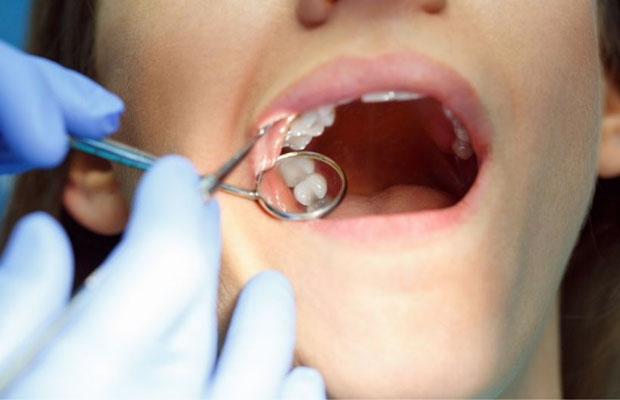
How To Sleep After Wisdom Teeth Removal?
After having their wisdom teeth removed, some people are more painful than others, but almost everyone feels some discomfort. Here are some methods for reducing pain so you can try to sleep.
- Follow the directions on any prescription painkillers. You should follow the directions on any painkillers your dentist has prescribed for you.
- Take ibuprofen. If no other painkillers are prescribed, you can take ibuprofen. If your oral surgeon approves and you don’t have any medical conditions that might prevent it from working, you may do this. ResearchTrusted Source shows that taking one dose of 400 milligrams (mg) of ibuprofen is better than taking 1,000 mg of Ibuprofen and Tylenol together can be even more effective at reducing pain than either drug by itself. Make sure to not exceed maximum daily dosesTrusted Source and follow directions from your surgeon.
- Establish a relaxing sleeping environment. Maintaining a cool, dark bedroom and engaging in other sleep-promoting activities before bed may aid in distracting you from your discomfort.
- Elevate your head. To help reduce swelling and encourage clotting at night, elevate your head by using an additional pillow.
- Sleep on your side. Comparatively speaking, sleeping on your side is easier than sleeping on your back if you want to keep your head elevated.
- Apply ice. A 2019 review of studiesTrusted Source found some evidence that ice applied in the first few days after wisdom tooth extraction helps reduce swelling. For 10 to 20 minutes at a time, place an ice pack wrapped in a cloth on your jaw.
- Observe any additional guidance provided by your surgeon. It’s a good idea to heed any additional specific recommendations your surgeon makes for easing your symptoms.
Activities To Help Through Recovery Period
Although recovering from wisdom tooth removal may not be the most enjoyable experience, for many people every day, it is a necessary evil to maintain good health. These pursuits can help keep your mind occupied and engaged while you are recuperating from your procedure and won’t put undue stress on your recovering body.
- Movies, audiobooks, and podcasts: These are simple activities that you can do to amuse yourself without exerting any physical effort. Grab a pair of headphones and curl up in front of the TV or your preferred audiobook or movie.
- Puzzles: Another low-energy activity that doesn’t involve much movement is solving puzzles, which can be done while still in bed.
- Video Games: If you want an experience that is a little bit more intense as you start to feel better, try out a brand-new video game.
- Read a book: Catching up on your reading and starting that new book you’ve been putting off can be the best use of this opportunity.
While you wait for your body to return to normal, you can pass the time by engaging in any motionless activities that you can complete from the comfort of your bed.
Additional Ways To Improve Your Sleep Quality
After wisdom tooth removal, there are a few additional ways to aid in improving your sleep.
Modify Your Mattress Outfit
One suggestion is to upgrade your mattress set by purchasing a temporary new bed setup.
Mattress toppers can be a great way to add support quickly. You could choose a mattress topper as a more affordable alternative to replacing your entire mattress in order to satisfy your post-procedure sleep needs.
To add more support, you can also use additional pillows. To add additional support and lessen back pressure, place a pillow beneath your knees.
Implement A Weighted Blanket For Relaxation
The widely touted health benefits of weighted blankets have made them more and more popular. It has been widely reported that using these blankets, which typically weigh at least 15 pounds, can help people fall asleep more soundly. Additionally used to treat stress, anxiety, and insomnia are weighted blankets.
The extra weight of the blanket helps people who recently had their wisdom teeth removed in more ways than just making them sleep better. By gently reminding you to stay on your back and avoid any extra, unnecessary movement throughout the night, the weight of the blanket can also help other sleepers adjust to sleeping on their backs. You can find a version that is suitable for your post-extraction sleep today, as they come in a variety of weights.
Read More:
Things To Avoid When Sleeping After Wisdom Teeth Removal
Take care not to disturb the blood clots that are developing in your wounds as you recover from wisdom tooth extraction, especially in the first 24 hours. A condition known as dry socket can be brought on by a blood clot that has dislodged or has formed improperly. This can happen on days 3 to 5 after wisdom tooth removal and is one of the most frequent complications.
To minimize your risk of complications, it’s a good idea to avoid the following habits:
- laying flat on your back while you sleep. Commonly advised for accelerating injury recovery is the RICE protocol, which stands for rest, ice, compression, and elevation. When you are sleeping, use one or two extra pillows to elevate and support your head.
- your wounds with a brush. In order to prevent your blood clot from being disturbed, it is advisable to refrain from brushing the area around the surgery site for at least the first 24 hours.
- Staying up late. Get plenty of sleep to give your body the time it needs to heal itself.
- smoking or consuming alcohol. Both alcohol and tobacco can obstruct your body’s natural ability to heal. For at least 24 hours following surgery, and ideally until you are fully recovered, it is advisable to refrain from these activities.
Read More: What to Eat After Wisdom Teeth Removal?
Should You Sleep With Gauze After Wisdom Teeth Removal?
By gently pressing against your wound, gauze serves the purpose of assisting your body in forming a clot. Because gauze poses a choking risk, you should never fall asleep with it in your mouth.
When you’re lying down with gauze in your mouth, it’s also very important to watch out for nodding off, especially if you’re taking any medications that might make you drowsy.
Final Words
Wisdom tooth extraction is nothing new, but fortunately there are a few things you can do to shorten the recovery period and encourage quicker, better healing.
You might have a dry socket or an infection if your pain worsens, you experience new pain, or you have swollen lymph nodes under your jaw. Call the office of your oral surgeon if you think you may have one of these conditions.
A few straightforward dietary adjustments, such as consuming soft foods and warm beverages, can help you avoid unneeded problems and ensure a speedier recovery. In order to enjoy not only a cozy space to recover but also better sleep each night, it’s important to consider what other changes you can make, from activities to even your mattress.


